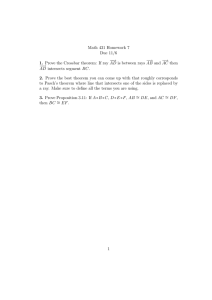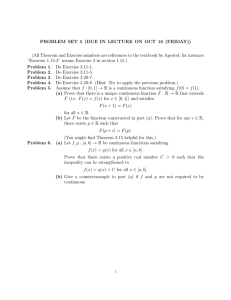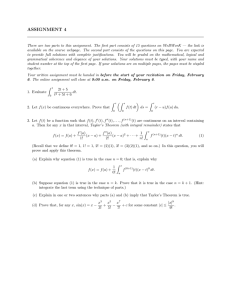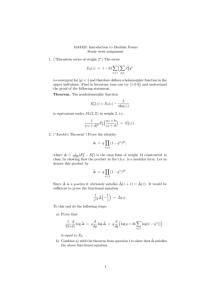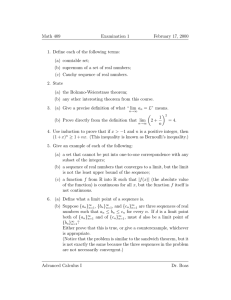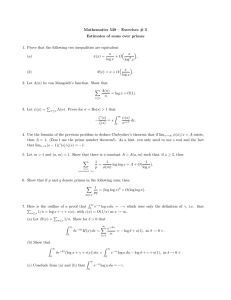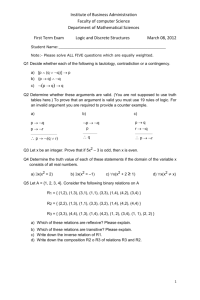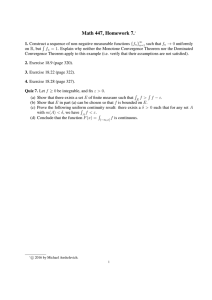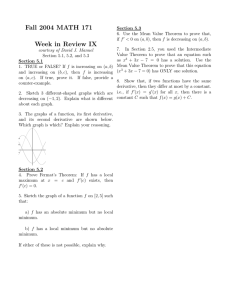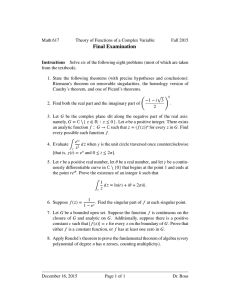Math 608, Homework 12
advertisement
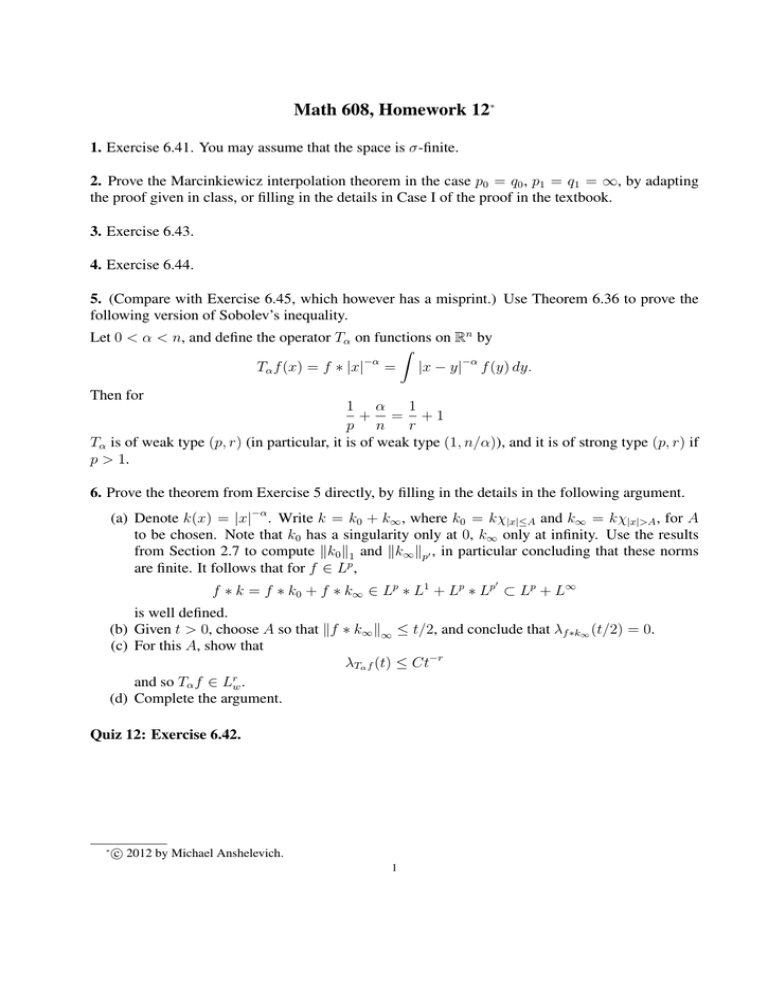
Math 608, Homework 12∗ 1. Exercise 6.41. You may assume that the space is σ-finite. 2. Prove the Marcinkiewicz interpolation theorem in the case p0 = q0 , p1 = q1 = ∞, by adapting the proof given in class, or filling in the details in Case I of the proof in the textbook. 3. Exercise 6.43. 4. Exercise 6.44. 5. (Compare with Exercise 6.45, which however has a misprint.) Use Theorem 6.36 to prove the following version of Sobolev’s inequality. Let 0 < α < n, and define the operator Tα on functions on Rn by Z −α Tα f (x) = f ∗ |x| = |x − y|−α f (y) dy. Then for 1 α 1 + = +1 p n r Tα is of weak type (p, r) (in particular, it is of weak type (1, n/α)), and it is of strong type (p, r) if p > 1. 6. Prove the theorem from Exercise 5 directly, by filling in the details in the following argument. (a) Denote k(x) = |x|−α . Write k = k0 + k∞ , where k0 = kχ|x|≤A and k∞ = kχ|x|>A , for A to be chosen. Note that k0 has a singularity only at 0, k∞ only at infinity. Use the results from Section 2.7 to compute kk0 k1 and kk∞ kp0 , in particular concluding that these norms are finite. It follows that for f ∈ Lp , 0 f ∗ k = f ∗ k0 + f ∗ k∞ ∈ Lp ∗ L1 + Lp ∗ Lp ⊂ Lp + L∞ is well defined. (b) Given t > 0, choose A so that kf ∗ k∞ k∞ ≤ t/2, and conclude that λf ∗k∞ (t/2) = 0. (c) For this A, show that λTα f (t) ≤ Ct−r and so Tα f ∈ Lrw . (d) Complete the argument. Quiz 12: Exercise 6.42. ∗ c 2012 by Michael Anshelevich. 1
